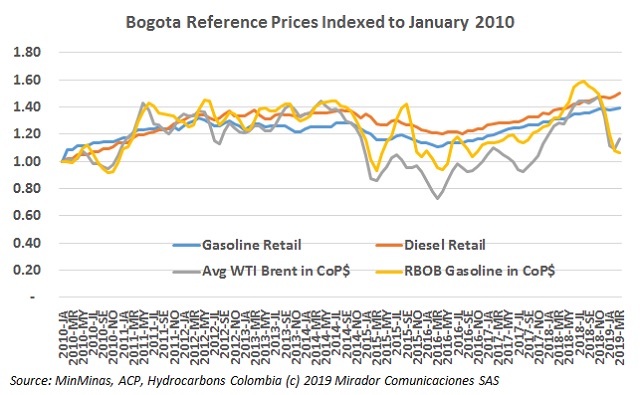The House of Representatives’ First Commission approved the initiative to modify the General System of Royalties (SGR), in its first debate. Here are the details.

The Fuel Price Stabilization Fund (FEPC) deficit has been one of the main issues in recent years, as it continues to grow without a possible solution. However, this deficit could have a considerable reduction.
The oil sector argues that it contributes large sums of money to the General System of Royalties (SGR), but some communities said that these resources are not seen. However, the department of Antioquia highlighted an interesting project funded with royalties.
The National Environmental Licensing Agency (ANLA) reported on the follow-up process of different energy projects. Here are the details.
Liberal Party Senators, Jaime Durán and Luis Fernando Velasco, tabled a bill to prevent the government from selling 8.5% of the NOC’s shares.
Colombia could see an increase in its oil revenues, if Brent prices stay at US$74, Acciones & Valores said.
The industry, headed by the Colombian Petroleum Association (ACP) and Ecopetrol (NYSE:EC), attended the second work meeting with President Iván Duque and his team.
The government agreed to modify the National Development Plan (PND), including an article that could lower the Value Added Tax (VAT) on gasoline and diesel. Will this impact gasoline prices?
Representatives of the sector talked about the relevance of unconventional deposits to considerably increase reserve and production metrics.
Opinions on the development of fracking in Colombia are still divided, but this might be the ‘missing piece of the puzzle’ to assure a healthy debate on the matter.